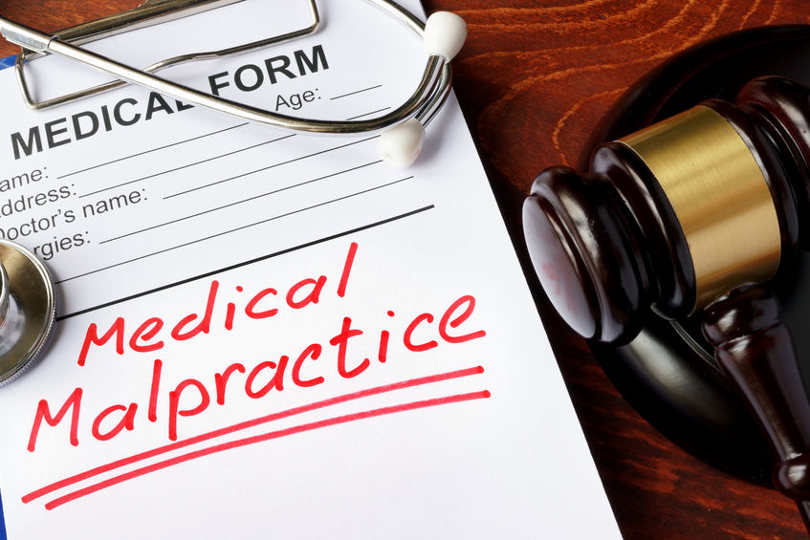When there is something wrong for someone, both physically and mentally, the first line of defense that we rely on is the medical center, doctor, nurse, and other medical professionals. Even when people suffer from injury or destroying diseases, who are life-threatening, medical professionals try their best to help these people, even if their treatment is solely palliative.
However, there are conditions where the hospital or nursing facilities and its medical professionals do not uphold the right level of patient care. In this situation, the negligence or negligence of medical professionals on behalf of medical facilities can endanger the care received by the patient, which results in unnecessary damage. When this happens, it is a violation of tasks under the law, and it is called medical malpractice.
Each state throughout the United States has laws that determine the elements of medical malpractice and the scope of damage that can be sought by medical malpractice victims. Before file a lawsuit against a medical professional, it is important to examine the law that is carefully relevant. The law will help you understand what you need to prove in connection with the pursuit of medical malpractice cases.
Basic Requirements for a Medical Malpractice
- Relationship Between You and the Medical Professional
The law requires you to prove that there is a doctor-patient relationship between you and your doctor when you file a medical malpractice lawsuit against them. This relationship helps to show an agreement between your doctor and you about treatment.
If a doctor does not tell or treat you directly, you will not have a reason for the case of medical malpractice. The law is looking for a doctor-patient relationship between the doctor and the person who has filed a lawsuit.
- Doctor’s Negligence
To file a lawsuit for medical malpractice against your doctor, you must show that medical professionals are negligent in connection with their diagnosis or the care they provide. Dissatisfaction with the results of medical professional care does not form a basis for medical malpractice claims. You must prove that a particular doctor has caused you to endanger that a reasonable professional will not be caused in the same condition.
A doctor is not required to be exact or produces extraordinary results, but they are expected to be quite skilled and careful in the way they provide patient care. A medical expert can help you determine the right maintenance standards for care in your situation and show how your doctor fails to carry it out.
- Injury Resulted From the Negligence
When you are hospitalized or undergoing treatment, you usually do it because you have an injury or disease. When you file a lawsuit for medical malpractice, you must prove that the negligence of medical professionals causes you to harm or injury that will not occur there is no action or intentions.
If the negligence of a medical professional speeds up bad results, you might have the opportunity to file a lawsuit. You must prove that the doctor’s uncertainty is “more likely than not” causing injury. Lawyers Personal injuries can help you prove this important element.
- Specific Damages Resulted From the Injury
During treatment and surgery, some patients must undergo invasive procedures in standard treatment courses. You cannot sue your doctor for an injection or stitches that causes you to be temporarily sick, especially when it prevents you from suffering from more severe damage which is your main threat. You must show that medical professionals hurt you as a result of their negligence.
You may sue for the following damages:
- You may sue for pain and suffering if you suffer from physical pain that arose from the negligence-inflicted injury and you would not have suffered absent the negligence.
- You may sue for mental anguish, such as loss of joy in your life, depression, and anxiety.
- You may sue for reimbursement for medical bills if the doctor’s error or negligence caused you additional expense.
- If the injuries you suffered as a result of a doctor’s medical malpractice were severe enough to limit your ability to work, you may seek damages for loss of wages and loss of future earning potential.
Common Examples of Medical Malpractice
There are several types of medical malpractice cases that generally occur, and the type of action that you will pursue will depend on your personal condition. Some of the most common types of medical malpractice include:
- Incorrect diagnosis, in which a medical professional fails to distinguish which medical condition you have and the appropriate course of action to treat that condition.
- Incorrect treatment, in which you undergo medical treatment that does not treat your medical condition and causes further injury.
Failed to fulfill the task of approval based on information, which occurs when a medical professional does not warn a patient about the risk of future care.However, an experienced lawyer in Philadelphia can help you navigate the complex consequences of pressure and destroying accidents. Before you file a lawsuit, there are many considerations that must be known by the victim. Contact the lawyer and find a free consultation about your case.


0